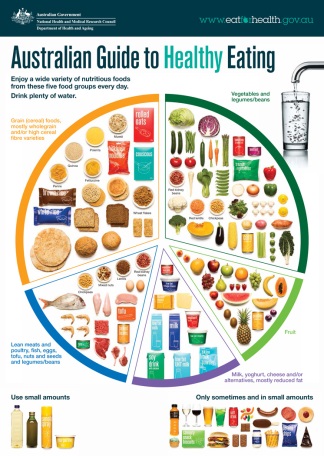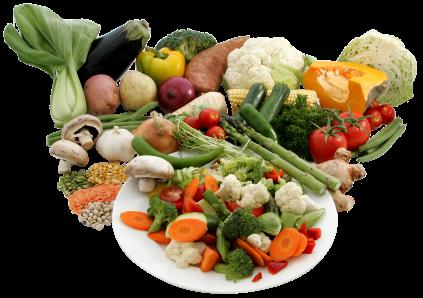Managing Vegetarian and Vegan Diets in Residential Aged Care Facilities
Special diets in Residential Aged Care Facilities (RACFs) can be challenging to cater for at times. Vegetarian and vegan diets are becoming more popular over time for a number of reasons, including ethical considerations or the desire to eat more of a plant-based diet for health reasons.
People who follow a vegetarian diet base their eating on foods of plant origin. There are many reasons why people wish to consume a vegetarian diet including personal preference or philosophy, religious or cultural reasons.
The type of vegetarian diet followed can vary significantly between individuals, so it is important to dedicate some time during admission to finding out more about a resident’s dietary choices so that they can be appropriately catered for.
Common vegetarian diets include:
| Excludes | Includes | |
|
Red meat (beef, pork, lamb) Poultry Fish/seafood |
Dairy (milk, yoghurt, cheese) Eggs |
|
| Lacto vegetarian |
Red meat (beef, pork, lamb) Poultry Fish/seafood Eggs Some animal by-products e.g. gelatin |
Dairy (milk, yoghurt, cheese) |
| Ovo vegetarian |
Red meat (beef, pork, lamb) Poultry Fish/seafood Dairy (milk, yoghurt, cheese) |
Eggs |
| Pescatarian |
Red meat (beef, pork, lamb) Poultry |
Fish/seafood Dairy (milk, yoghurt, cheese) Eggs |
| Pollotarian |
Red meat (beef, pork, lamb) Fish/seafood |
Poultry Dairy (milk, yoghurt, cheese) Eggs |
| Vegan |
Red meat (beef, pork, lamb) Poultry Fish/seafood Eggs Dairy (milk, yoghut, cheese) All animal by-products e.g. gelatin, honey |
People following a vegetarian or vegan diet may also follow a ‘no animal product’ philosophy, for instance not using any leather goods or eating any foods produced by animals (e.g. honey).
Are vegetarian diets healthy?
Any diet that restricts particular core food groups may increase the risk of nutritional deficiency if it is not carefully planned. A vegetarian or vegan diet can be well balanced if it includes high protein meat alternatives in addition to the other core food groups:
- Vegetables (a range of types and colours) and legumes/beans
- Fruit
- Meat alternatives including legumes/beans, tofu, eggs, nuts and seeds
- Grain (cereal) foods, mostly wholegrain, such as breads, cereals, rice, pasta, noodles, oats
- Milk, yoghurt, cheese and/or alternatives (such as calcium fortified soy milk).

Nutritional factors to consider for vegetarian and vegan diets:
Protein
Protein is essential for many body processes and is made up of components called amino acids. Some amino acids can be made by the body (non-essential) and some must be provided by the diet (essential). Complete proteins contain all the non-essential amino acids. Foods of animal origin are complete proteins. Aside from soy beans, most individual plant food proteins are not complete, but consuming various types of plant foods throughout the day should provide all the amino acids necessary for good health. An Accredited Practising Dietitian can help to ensure that your residents are provided with an adequate variety of protein-rich foods.
Good sources of protein for vegetarians include dairy products such as milk, yoghurt, cheese or custard, or non-dairy options such as eggs, legumes (peas, beans, lentils), nuts and seeds, wholegrains and soy-based products such as tofu.
Vitamin B12
Vitamin B12 is required for brain function, red blood cell formation and the breaking down of some fatty acids and amino acids to produce energy. As we age, the ability of our digestive system to absorb vitamin B12 decreases. Vitamin B12 deficiency can result in poor nerve function, reduced heart and brain function and behavioural or emotional changes such as depression and irritability. Some medical conditions can lead to reduced vitamin B12 absorption such as pernicious anaemia, gastrectomy (removal of all or part of the stomach e.g. following stomach cancer or bariatric surgery), pancreatitis or certain medications.
As vitamin B12 is only found in animal foods such as meat, poultry, seafood, eggs and dairy, residents with a limited intake of animal foods and those following a vegan diet are at increased risk of deficiency. Alternative dietary sources of vitamin B12 include fortified products such as soy milks, tofu and some soy sausages and burgers.
A blood test can determine serum levels of vitamin B12 and, if required, appropriate supplementation can then be prescribed by a doctor in the form of tablets, sublingual tablets/sprays or injections.
Iron
Iron plays a role in transporting oxygen around the body, and is essential for strong immune function, muscle strength and good mental function. Iron deficiency can lead to fatigue and decreased concentration and, if severe, can affect heart function. As the iron found in red meat is better absorbed by the body than plant based iron, it is important that non-meat eaters include a variety of iron-containing alternatives such as eggs, lentils and nuts regularly. There is also some iron in wholemeal pasta, bread and dark leafy vegetables, but this is not as readily available to our bodies. Iron may also be found in some fortified foods such as breakfast cereals.
Combining iron-containing plant-based foods with foods high in vitamin C (such as fruit and vegetables) can help increase the absorption of iron. Two examples of this include a handful of nuts served with a piece of fruit at morning tea or eggs served with wholemeal toast, spinach and grilled tomato at breakfast.
Note: Iron supplements should only be used if iron deficiency exists and under medical supervision.
Zinc
Zinc is a micronutrient that performs essential functions in the body, including the development of immune system cells. Zinc deficiency can therefore lead to impaired immune function. Zinc can be found in many foods but is more readily absorbed from foods of animal origin. People following a vegetarian or vegan diet must ensure that they consume plenty of alternative sources such as nuts, tofu, legumes, wholegrain foods and wheat germ.
Tip: Ground nuts and nut butters may be easier for the elderly to consume than whole nuts.
Calcium
Calcium is vital for healthy teeth and bones and also plays a role in the healthy functioning of nerves and muscles. The best source of calcium in the Australian diet is dairy products such as milk, yoghurt, and cheese, and calcium fortified milk alternatives e.g. soy milk. Dairy foods also contain other important nutrients essential for bone health including protein, phosphorus, magnesium and zinc.
Alternative sources of calcium for people following a vegetarian or vegan diet include green leafy vegetables, some nuts, legumes and fortified cereals. These foods however contain smaller amounts of absorbable calcium than dairy foods, so it is important that calcium fortified products (e.g. calcium fortified soy milk or tofu) are offered to residents who do not consume dairy products.
|
|



